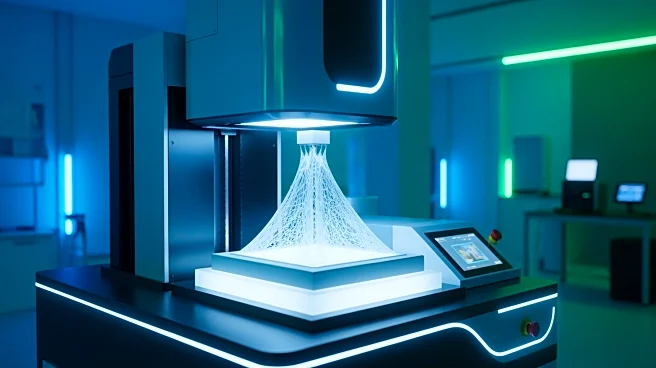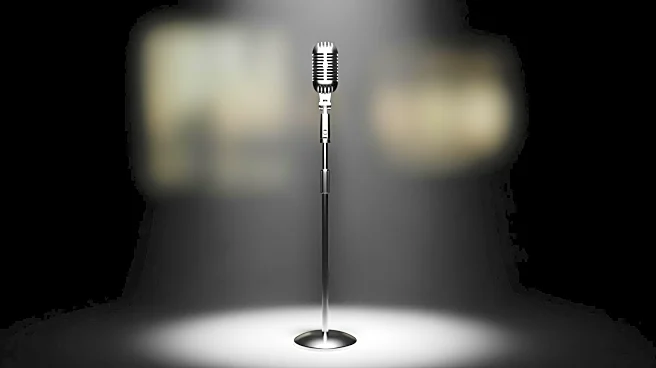What's Happening?
Deezer, a French music streaming service, has reported a significant increase in the number of AI-generated songs on its platform, reaching approximately 50,000 new songs daily. This marks the fourth report this
year on the rise of AI-generated content. Deezer's proprietary AI detection tool identifies these songs, which have been increasing in volume as more users adopt AI tools like Suno and Udio. The company has implemented measures to tag AI-generated works and exclude them from algorithmic recommendations. A survey conducted by Deezer revealed that 97% of participants could not distinguish between AI-generated and human-made music, and 66% of users expressed curiosity about listening to AI-generated music.
Why It's Important?
The surge in AI-generated music on platforms like Deezer highlights the growing influence of artificial intelligence in the music industry. This development could significantly impact music production, distribution, and consumption patterns. While AI offers opportunities for innovation and efficiency, it also raises concerns about the potential loss of creativity and the quality of music. The inability of users to differentiate between AI and human-made music could challenge traditional notions of artistry and authenticity. As AI continues to evolve, it may reshape the music industry, affecting artists, producers, and consumers alike.
What's Next?
Deezer's proactive approach to regulating AI-generated content suggests ongoing efforts to balance innovation with transparency. The company plans to continue its research into AI's impact on the music business, potentially influencing industry standards and practices. As AI-generated music becomes more prevalent, streaming platforms may face pressure to clearly label such content and address user concerns about authenticity. The music industry may also need to adapt to new models of music creation and distribution, considering ethical and legal implications.
Beyond the Headlines
The rise of AI-generated music raises ethical questions about the role of technology in creative industries. It challenges traditional concepts of authorship and originality, prompting discussions about intellectual property rights and the value of human creativity. As AI tools become more sophisticated, they may blur the lines between human and machine-generated art, influencing cultural perceptions and consumer preferences.









